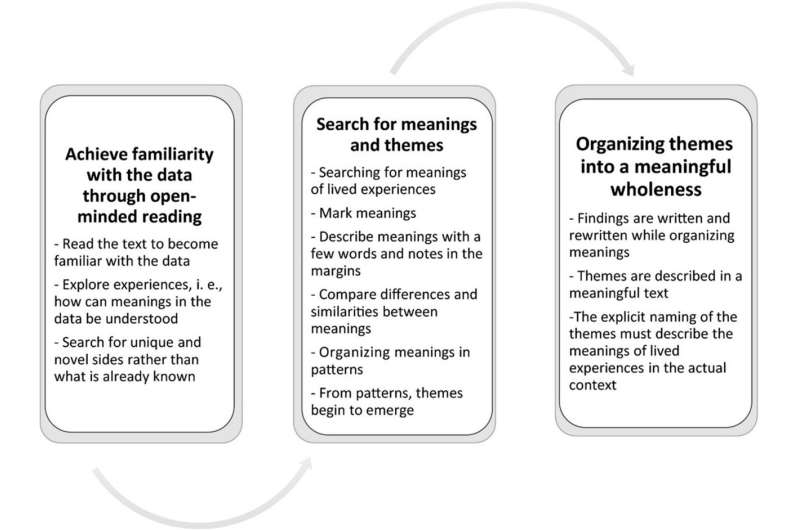This article has been reviewed according to Science X's editorial process and policies. Editors have highlighted the following attributes while ensuring the content's credibility:
fact-checked
trusted source
proofread
Tackling inequalities in end-of-life care

Language barriers are resulting in people from South Asian communities experiencing more pain at the end of life, new research has found.
A team from the University of Leeds interviewed 15 people of South Asian heritage from Bradford and Leeds who were either living with a terminal illness or are caring for someone who is.
The study explored the experiences and attitudes of patients and family caregivers from South Asian communities about pain and its management within advanced disease or serious illness.
Participants were asked about their experiences of pain relief and their answers were used to identify key areas where health care professionals can improve the support they provide in managing pain.
Barriers to communication
The most common theme identified by respondents was the importance of good communication about pain with health care professionals.
For many, language barriers meant they did not feel understood by the health care professionals they relied on.
Among the comments made to the researchers, some people articulated they had to repeat and re-explain the issues they were having. Others said they did not feel heard or believed about the severity of their pain.
Those who did not have English as their first language found it difficult to understand technical medical language related to their condition or medication.
The study, published in the journal BMC Palliative Care, also found that some interviewees who were bilingual preferred to communicate in their first language during times of stress and ill health. This meant those with a good level of fluency in English still struggled to communicate effectively with health care workers.
Removing barriers
Lead researcher Dr. Gemma Clarke, Marie Curie Senior Research Fellow in the School of Medicine, said, "Health care professionals must ensure that people living with painful and serious conditions can have access to effective pain medication."
"This study demonstrates why investment in medical interpreters and translated information about illness and pain medication would be beneficial to many people across Bradford and Leeds."
"Anyone working with patients and caregivers affected by terminal illness must work hard to remove any barriers that exist, whether they be cultural, language-based or otherwise."
More information: Gemma Clarke et al, Experiences of pain and pain management in advanced disease and serious illness for people from South Asian communities in Leeds and Bradford: a qualitative interview study, BMC Palliative Care (2023). DOI: 10.1186/s12904-023-01208-2




















